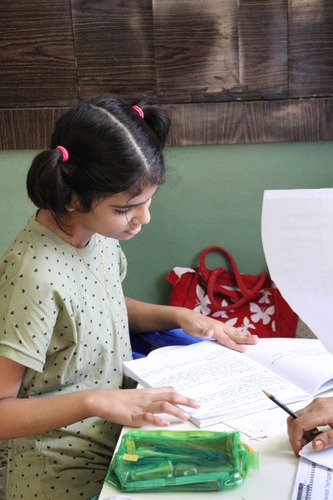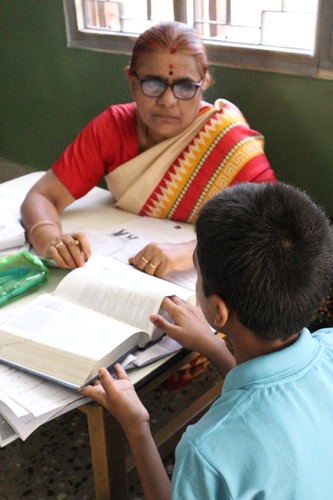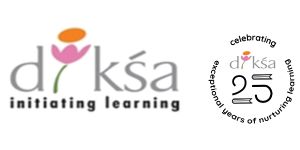
What schools can do…
Schools must realize that the dyslexic child’s reading, writing, spelling, comprehension, and arithmetic skills often range from considerably below to far below the norm. Learning difficulties or specifically dyslexia, dyscalculia and dysgraphia – be it mild, moderate or severe – cuts across class, age and intelligence and all schools will have some dyslexic children. Infact it is believed that every class has at least one dyslexic child.
All teachers in primary and secondary schools therefore need to be made aware of and trained in the teaching methods, which are most effective with such children.
We need to understand that difficulties in reading, writing, spelling and handwriting may have nothing to do with intelligence and such learning difficulties can be found in a person of any IQ from low to very high. They are however easier to spot in a brighter child because his academic difficulties seem to surprise both parents and teachers. The brighter the child, the more frustrated he can become.
Lack of awareness may lead to labeling the child as stupid or lazy, leading to the child carrying a discarded identity and behaving in just that way.
What the teachers can do in class…
LD children need to be taught how to learn. A sympathetic and positive approach can alleviate the child’s anxiety.
Appreciate the effort of the child rather than the results – the process than the product.
Begin every lesson with an outline of what is going to be taught.
Establish links between the current lesson and the ones done before. This is useful for all children.
The child with learning difficulty often learns visually. So, use both visual and auditory tools and methods to teach a lesson.
Avoid using negative words, threats and labels in the class. They can never help to motivate any child nor is the teacher going to feel any happier.
Establish eye contact with this child while you teach. Talk in brief sentences, especially while giving instructions and do it in a moderate voice. Make the child sit in front of the class, next to a high performer.
Educate other teachers and other parents so as to build support for the child.
Ignore minor misdemeanors and overlook spelling errors, handwriting and neatness when you want to enhance content learning. Wind up your class with a recap of what was taught.
Encourage the child to answer orally whenever possible and praise him lavishly.
Believe in the child.

